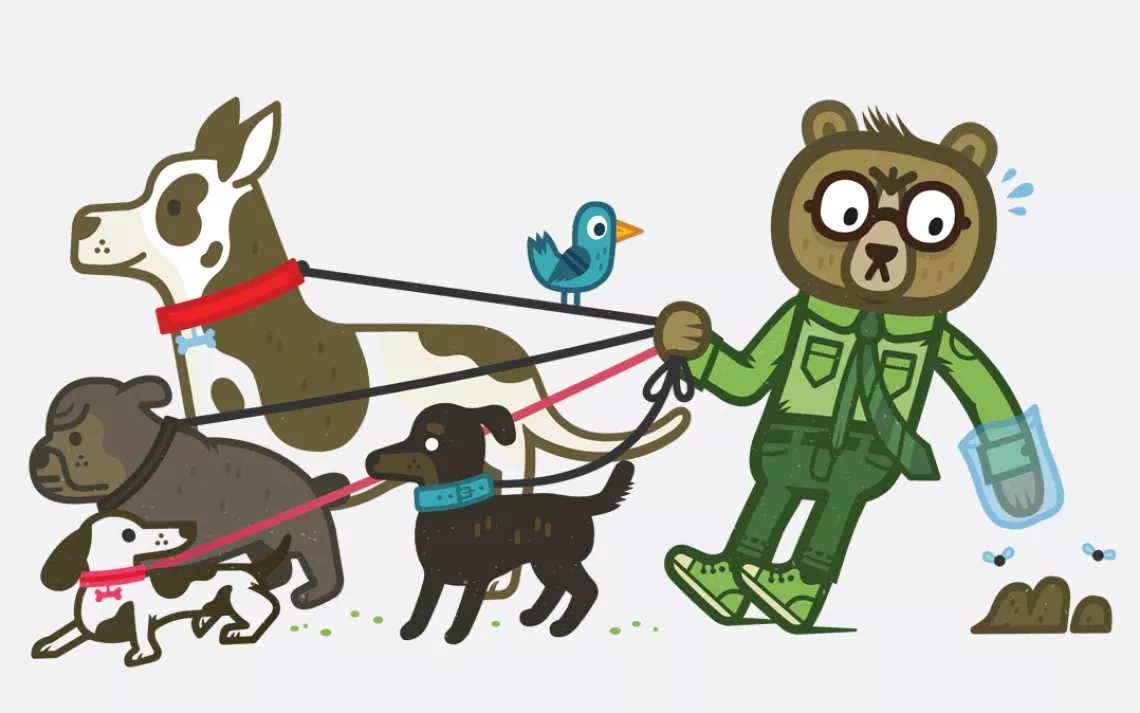Is It Better to Scoop or to Bury Dog Poop?
Mr. Green has the scoop on the answer

Illustration by Little Friends of Printmaking
Hey Mr. Green!
Q: I live near beautiful Lake Tahoe. Increasingly, dog walkers are leaving behind their plastic bags, expecting the dog-doo fairy to spirit them away. Wouldn't it be better to just carry a lightweight trowel and bury the stuff?
—Trudi in South Lake Tahoe, California
A: It's not a good idea to bury dog waste. What's the big deal? It's a point source of pollution that can spell big trouble for soil and water quality, and even human health if it's buried too close to vegetable gardens or waterways. Dog excrement contains nasty pathogens like Giardia, Salmonella, and E. coli, along with the less famed Ancylostoma, Cryptosporidium, and Toxocara canis. It also has nutrients that can encourage the growth of fish-suffocating algae—like the kind that's already plaguing Lake Tahoe—if released into rivers or streams.
Even if you could persuade folks to carry a trowel hefty enough to bury dog poop, you'd have no control over where it was interred. And with total U.S. dog waste estimated at more than 9 million tons a year, that's a lot of digging.
The only realistic solutions? (1) Pick up the excrement, preferably with a biodegradable waste bag, tie it shut, and place it in garbage destined for a landfill or (2) scoop it up or bag it, take it home, and flush it unbagged down the toilet. But first, check with the municipal sewage treatment plant to make sure this practice is allowed. Don't put dog-doo-tainted bags of any kind into home or municipal compost, and never flush dog excrement into a septic system.
 The Magazine of The Sierra Club
The Magazine of The Sierra Club



